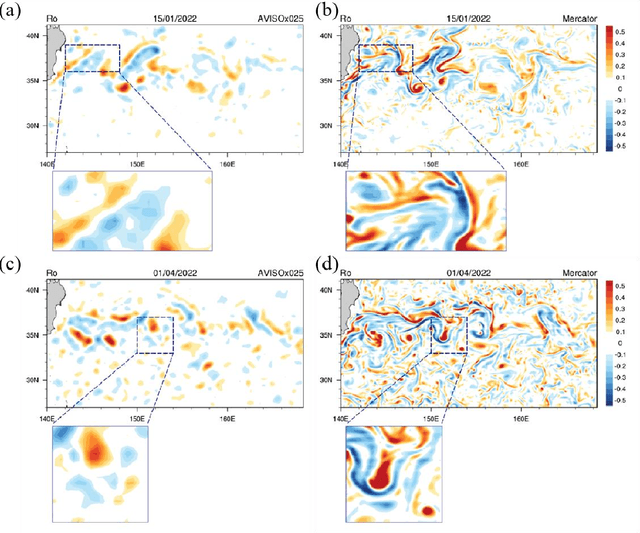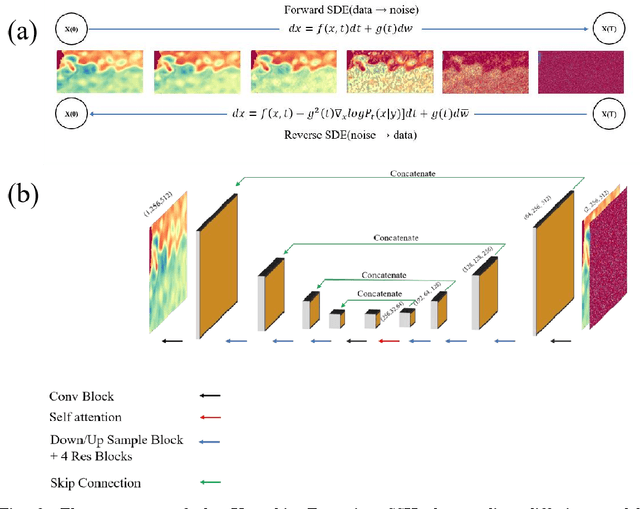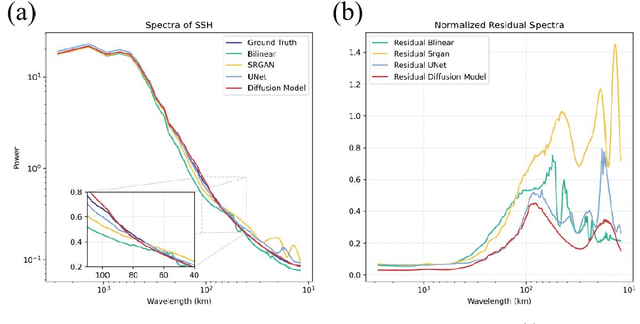Generative Diffusion Model-based Downscaling of Observed Sea Surface Height over Kuroshio Extension since 2000
Paper and Code
Aug 22, 2024



Satellite altimetry has been widely utilized to monitor global sea surface dynamics, enabling investigation of upper ocean variability from basin-scale to localized eddy ranges. However, the sparse spatial resolution of observational altimetry limits our understanding of oceanic submesoscale variability, prevalent at horizontal scales below 0.25o resolution. Here, we introduce a state-of-the-art generative diffusion model to train high-resolution sea surface height (SSH) reanalysis data and demonstrate its advantage in observational SSH downscaling over the eddy-rich Kuroshio Extension region. The diffusion-based model effectively downscales raw satellite-interpolated data from 0.25o resolution to 1/16o, corresponding to approximately 12-km wavelength. This model outperforms other high-resolution reanalysis datasets and neural network-based methods. Also, it successfully reproduces the spatial patterns and power spectra of satellite along-track observations. Our diffusion-based results indicate that eddy kinetic energy at horizontal scales less than 250 km has intensified significantly since 2004 in the Kuroshio Extension region. These findings underscore the great potential of deep learning in reconstructing satellite altimetry and enhancing our understanding of ocean dynamics at eddy scales.
 Add to Chrome
Add to Chrome Add to Firefox
Add to Firefox Add to Edge
Add to Edge